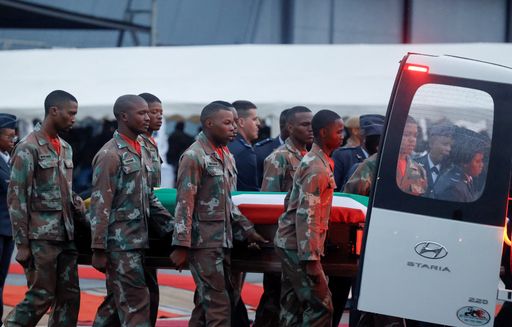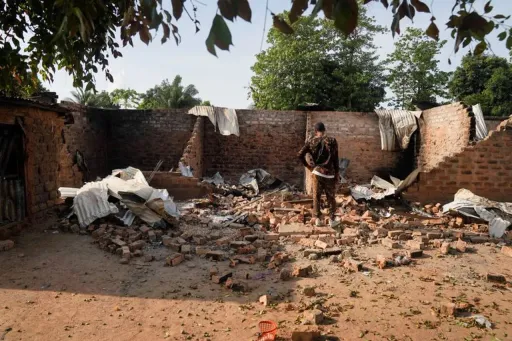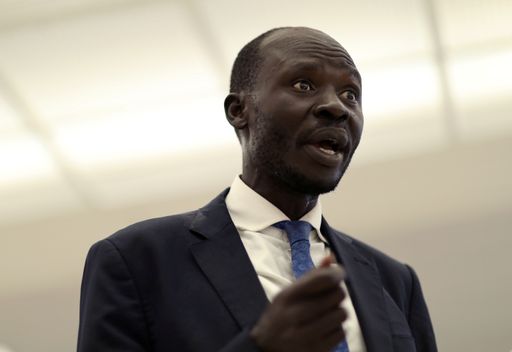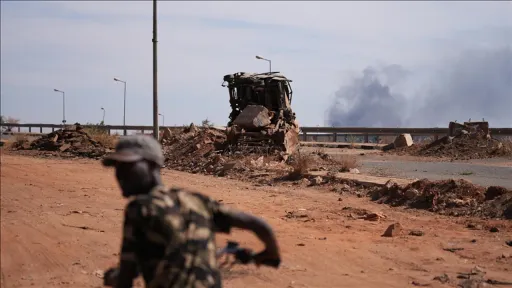Sport
Kenya's President William Ruto has delivered a fiery speech at the 80th UN General Assembly (UNGA) in New York, saying reforms are needed at the UN, IMF, World Bank and other institutions, with Africa's interests at the centre of the desired changes.
Kenya's President William Ruto delivered a fiery speech at the 80th United Nations General Assembly (UNGA) in New York on Wednesday.
The Kenyan head of state's wide-ranging speech addressed the humanitarian situation in Gaza, the war in Sudan, the need for institutional reforms at the UN and among international lenders such as the IMF and the World Bank, the security situation in Haiti, and the world's simmering geopolitics.
Below is a summary of President Ruto's hard-hitting speech at UNGA:
Gaza situation
Ruto expressed Kenya's "grave concern" over the humanitarian catastrophe in Gaza and called for a permanent ceasefire and respect for international law. "Only through such a process can the vision of a two-state solution be realised — where Israel and Palestine live side by side, in peace and in security."
IMF and other major lenders
President Ruto blasted international financial institutions such as the International Monetary Fund (IMF) and the World Bank for "unfairness" toward Africa. He said the lenders tend to give more money to wealthier nations while "punishing" Africa with heavy interest rates, little loan amounts, and many conditions. "For instance, during the IMF's recent allocation of Special Drawing Rights (SDRs), 64% went to wealthy countries with little need for liquidity support, while the poorest countries received just 2.4%. This imbalance highlights how the very institutions meant to safeguard global financial stability often perpetuate inequity."
Permanent seat on UN Security Council
President Ruto asserted that Africa deserves two permanent seats on the UN Security Council with veto power, plus two non-permanent seats. He added that UN reforms are "not a favour for Africa", but a necessity for the organisation's own survival. "Africa dominates most of the Security Council's agenda… yet we remain the only continent without a permanent seat at the table, where decisions about our destiny are made. The world must understand that reforming the Security Council is not a favour to Africa; it is a necessity for the UN's own survival."
UN's diminished credibility
President Ruto further said the United Nations, as an organisation, currently faces "deepest challenges in its credibility," asserting that the institution is "too often drowned by the rivalries of the great powers", therefore not delivering as it should. "Too often, the UN's blue helmet, once a symbol of moral authority, no longer commands the same respect. From the conflicts in Gaza and Ukraine to the crises in Sudan, DR Congo, Somalia, and the Sahel, we see actors proceed undeterred by the UN's calls."
Haiti situation
President Ruto said that his government, which leads a security mission in the gang-affected Haiti, remains committed to the cause, but has often faced funding challenges. "The (Kenya-led security) mission has operated in a volatile environment under enormous constraints. It has been underfunded, under-equipped, and operated below 40% of its authorised personnel strength. Our police officers have valiantly shouldered responsibilities without the full logistical support that should accompany any mission sanctioned by the United Nations."
Sudan crisis
On Sudan, which is currently witnessing a devastating civil war, the Kenyan head of state said that the Sudanese conflict, which pits the regular army (SAF) against the paramilitary Rapid Support Forces (RSF), can only be resolved through dialogue and not military force. "We fully endorse the Quad — comprising Egypt, Saudi Arabia, the United Arab Emirates, and the United States — in affirming that there can be no military solution and that only political dialogue offers a viable path forward. We urge all parties, including SAF, RSF, and external actors, to respect Sudan's sovereignty, unity, and territorial integrity, and firmly reject any attempts to divide the country, reaffirming our unwavering support for a unified Sudan."
Deep global divisions
President Ruto also said that international efforts to bridge divisions within the world have yielded little progress, calling for a collective review of peace restoration and regional integration measures. "Instead of trust, mistrust is spreading. Instead of solidarity, fragmentation is taking root. In place of hope, anxiety fills our global community. We are living, to borrow from the words of the founders of this institution (UN), not in 'larger freedom,' but in growing uncertainty. At this moment of turbulence, when we most need a strong United Nations, the organisation faces its deepest crisis in credibility and capacity. Funding cuts have paralysed its operations. Bureaucracy has slowed its response. The Security Council remains frozen in the post-war structures of 1945, unable to act inclusively, with fairness, and with speed."
Comments
No comments Yet




















Comment